SUMMARY
This is AI generated summarization, which may have errors. For context, always refer to the full article.
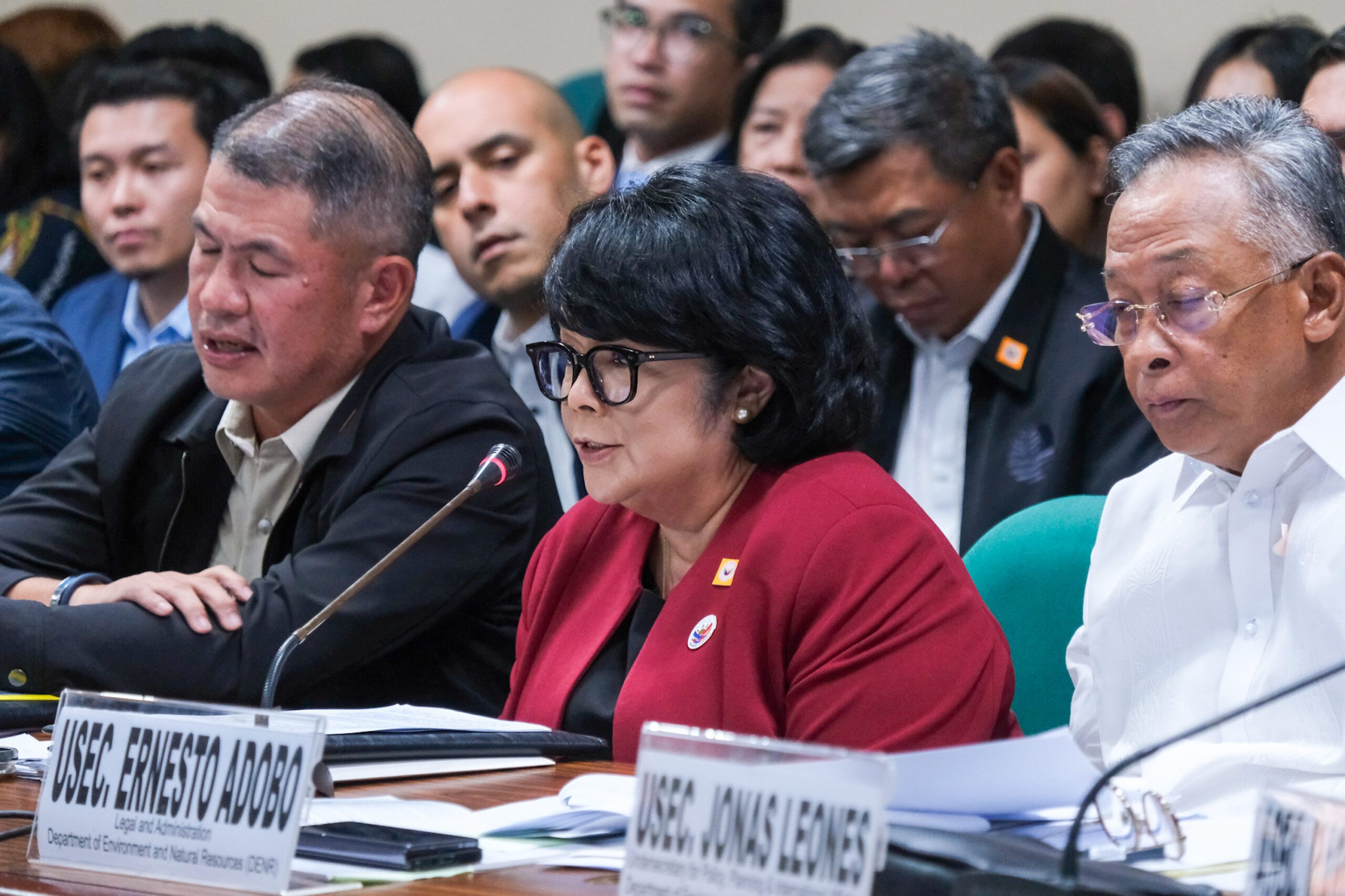
CEBU, Philippines – Senators, during a joint session of the committees on local government and environment, natural resources and climate change scolded officials from the Department of Environment and Natural Resources (DENR) for their alleged negligence in the issuance of environmental compliance certificates (ECC) to projects in protected areas.
To recall, the controversial Captain’s Peak Resort, which built structures on the foot of three Chocolate Hills in Bohol, did not have an ECC. Rappler visited other establishments built on top of Chocolate Hills and found that they had ECCs.
During the Senate session that was broadcast live on Wednesday, April 3, it was revealed that more establishments in other provinces were operating without an ECC, while other establishments had ECCs but were allegedly noncompliant with environmental standards.
In their defense, DENR Secretary Toni Yulo-Loyzaga pointed out that the membership of the Protected Areas Management Board (PAMB) affects what happens to the management of protected areas.
“The membership of the PAMB is dominated by the local interest. The DENR sits as chair, it does not vote, and the PAMB can be constituted when the DENR is absent or is not available,” the DENR secretary said.
Under the Expanded National Integrated Protected Areas System (E-NIPAS) Act of 2018, the PAMB consists of the DENR regional director under whose jurisdiction the protected area is located, the concerned governor, district representative/s, mayor/s, barangay head/s, three representatives from nongovernmental organizations, and at least one representative each from indigenous peoples and communities, academe, and the private sector, to name a few.
Loyzaga argued that it was the barangay officials of Canmano in Sagbayan town who presided over the meeting for the PAMB resolution in 2018 that endorsed the construction of Captain’s Peak Resort.
“Whenever there is a meeting, the sheer number of the attendees will outvote even the DENR,” she said.
Senator Nancy Binay, however, argued that the DENR, through its secretariat, still prepares the agenda for the PAMB resolution meetings.
“Kung hindi ‘yun ang agenda, walang ia-outvote to begin with (If that was never the agenda, nobody would be outvoted to begin with),” Binay said.
An irate Senator Cynthia Villar, who chaired the environment committee, pointed to DENR officials and told them that the committee could excuse the PAMB since it was comprised mostly of non-environmental experts, but the DENR still issued ECCs to questionable establishments.
“Walang nag-i-issue ng ECC kundi ang DENR, so kasalanan ‘yon ng DENR (Nobody else issues an ECC but the DENR, so it is the DENR’s fault),” Villar said.
Lapses in monitoring
Senator Raffy Tulfo questioned the DENR’s process in issuing ECCs and how some establishments, particularly in the Mount Apo Natural Park (MANP), managed to build structures despite having no ECCs.
According to him, the DENR in Davao was aware of these structures in the MANP yet still gave the owners of the properties an allowance of two years to comply with the ECC requirement.
DENR Davao Regional Executive Director Mercedes Dumagan said that there were 53 establishments without a PAMB clearance and ECC operating within the MANP.
The regional director explained that they still sent notices of violation to these establishments, called owners to a technical conference, and penalized known violators with a P50,000 fine.
“If it is deemed that the project is not detrimental to the environment, they can be issued an ECC,” Dumagan said.
The senators were still not content with the DENR’s response to the violations and lambasted them for putting minimal effort into preventing the structures from being built.
“You should have monitored that, nakarating sa inyong kaalaman na bawal ‘yan (you learned that it was not allowed), you should have coordinated with the LGU,” Tulfo said.
Binay questioned why the DENR did not just demolish structures encroaching on protected areas.
“You never exercised the power to demolish,” Binay said.
Loyzaga clarified that in some of the protected areas, there were alienable and disposable lands that were titled to locals.
“Therefore, we have no option but to recognize the [ownership] rights,” she said.
According to the DENR, around 13,500 of about 13,900 hectares of land in the Chocolate Hills Natural Monument were alienable and disposable before its enrollment in the E-NIPAS list.
Binay proposed to look for ways to expropriate the properties. Bohol Governor Erico Aristotle Aumentado echoed the sentiment in his speech and said that private owners should be properly compensated for the land that they could no longer use.
Weak offices
“One of the findings is that the regional office is weak,” Villar said in a mix of English and Tagalog.
Binay pointed out this weakness in the case of the Socorro Bayanihan Services Inc. in Surigao del Norte. Members of the cult organization illegally occupied a 353-hectare protected area provided by the government.
Senator Bato dela Rosa shared that the DENR cited a lack of personnel in the conduct of inspections and enforcement of laws in that protected area.
In the case of the MANP, the DENR cited that it only had one plantilla officer and 30 job-order employees monitoring 62,000 hectares of the protected area.
Binay responded to this, stating that the lack of personnel shouldn’t have prevented the DENR from adopting new technologies like drones to conduct inspections.
Loyzaga said they were still in the process of procuring the necessary drone equipment and specialists.
“We are not fully in control of these areas, as you know, given the kind of manpower that we have. The local governments are our partners in the protection of the environment. This is not DENR’s sole job – this is the job of [everyone],” the DENR secretary said. – Rappler.com
Add a comment
How does this make you feel?
















![[OPINION] Grading Marcos admin’s performance on the climate agenda](https://www.rappler.com/tachyon/2024/06/grading-marcos-performance-climate-agenda-june-25-2025.jpg?resize=257%2C257&crop=441px%2C0px%2C1080px%2C1080px)
![[OPINION] Dipolog City: Is it modernization or cultural revision that’s happening?](https://www.rappler.com/tachyon/2024/07/dipolog-feature-july-6-2024.jpg?resize=257%2C257&crop=0px%2C0px%2C720px%2C720px)
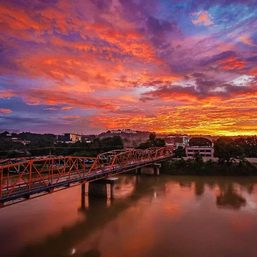

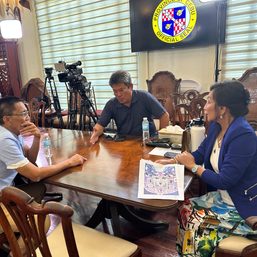




![[WATCH] Bamban POGO scandal: There’s a bigger fish than Alice Guo](https://www.rappler.com/tachyon/2024/07/inside-track-tcard-bamban-pogo.jpg?resize=257%2C257&crop=435px%2C0px%2C1080px%2C1080px)


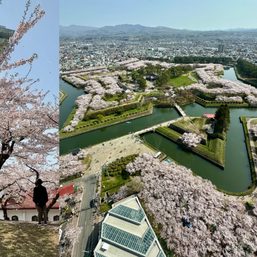
![[Ilonggo Notes] Guimaras: Geared up for success](https://www.rappler.com/tachyon/2024/05/Ilonggo-Notes-Guimaras-May-6-2024.jpg?resize=257%2C257&crop=298px%2C0px%2C720px%2C720px)
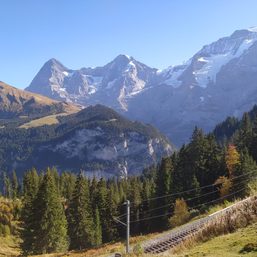
There are no comments yet. Add your comment to start the conversation.